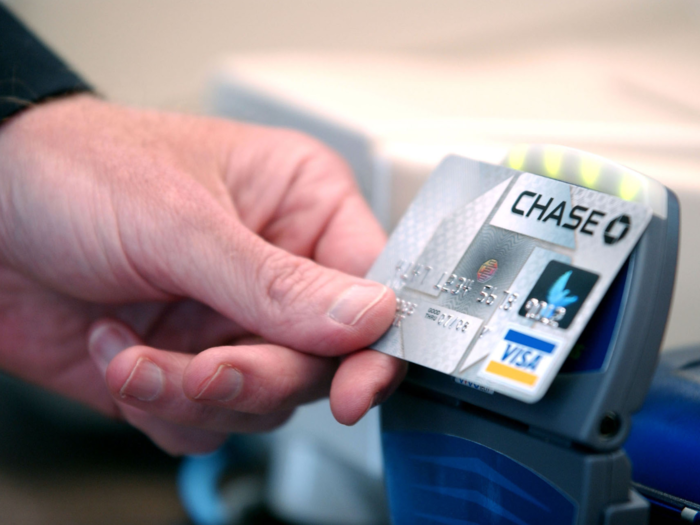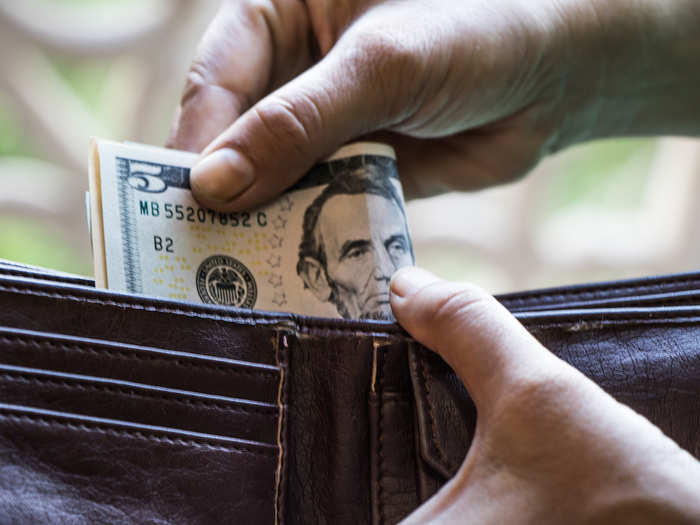- Home
- slideshows
- miscellaneous
- 11 financial experts share the best money advice they've ever received
11 financial experts share the best money advice they've ever received
1. Live on less than you make

2. Always use cash

"Investments are fine, but always have cash if you need it." This advice is from my late father, a child of the Great Depression. It's kept me out of major trouble in the past and is solid advice for both individuals and businesses.
— James Stefurak, CFA, founder/editor, The Invoice Factoring Guide
3. Take willpower out of your saving habits by setting up automatic transfer

When you set up an automatic transfer, you take willpower out of the equation, and it makes saving effortless and consistent.
Make it even easier using an app like STASH, which helps you save automatically by analyzing your spending and earning patterns. The app learns when you have extra cash to spare and, little by little, money is saved into your STASH account, where it earns interest until you decide to invest it or put it toward one of your goals.
— Andrea Woroch, consumer expert
4. Start saving while you are young

The number one most common mistake I see young people make is that they think they don't need to start saving until they get older. This is completely wrong.
Getting an early start on savings can pay off in a big way. The gift of time and compound interest is one of the greatest you can give yourself.
Compounding happens when earnings on your contributions get reinvested to generate their own earnings, which also get reinvested to create more earnings, and so on.
Over time, compounding can add a lot of fuel to the growth of your savings. For example, if you invest just $100 a month, over 40 years you will have put aside $48,000, but it will actually be worth about $186,000 (assuming about 6% annual return). If you can save $125 a month, after 40 years, you'll have $232,000!
5. Invest 15% of your salary in a simple portfolio

Some of the best money advice I ever received was through a written piece from investing expert William Bernstein that only took me about 10 minutes to read. It's called "If You Can."
In the article, Bernstein presents extremely simple but very powerful steps that anyone can take to (potentially) outperform 90% of finance professionals and retire a millionaire.
The advice is simple: Save 15% of your salary and invest it in a simple portfolio. What makes this exciting and challenging isn't the advice, but the execution.
— Uri Pomerantz, CEO of Twine
6. Do not increase your spending when you get a raise

Pay yourself first! Far too often, we fall victim to "lifestyle creep," where we raise our standard of living to match our income when what we should be doing is raising our standard of saving to match our income. When you get a raise, pay yourself first!
— Chad Rixse, co-founder, Millennial Wealth
7. Look at your credit report

As a young man with a good job and a mortgage, I was disappointed when I was repeatedly turned down for the credit cards I wanted. My financial advisor suggested that I take a look at my credit report, something I hadn't done in years. I was shocked to see not one, not two, but three large collection accounts in my name. It looked like I was a deadbeat to the tune of five figures!
Turns out, another Mark Fidelman wasn't as good as paying his bills as I was, and his financial failures were showing up on my credit report. It took me three months to get the faulty collection accounts removed, but my credit score rose over 125 points.
— Mark Fidelman, personal finance expert and CMO at free online financial resource MoneyTips.com
8. Make the most of your credit card points

The first lesson I learned about travel loyalty programs is that if you are creative and willing to experiment, you can stack up rewards almost everywhere.
In college, I spent time flying back and forth between California and Ohio. Growing up, my family was poor, so I started looking for ways to cut my travel costs using airline miles.
In my search, I found that a regional grocery store was offering bonus miles after spending a certain amount on groceries. Needless to say, I signed up everyone in my family who had the card with my frequent flyer number, which quickly turned into discounted flights.
That year the promotion went on, we all saved a little money — on gas through grocery store discounts, on groceries with local promotions, and even on flights.
— Joe Cortez, NerdWallet credit card points and miles expert
9. Don't work for money; let money work for you

One of the best pieces of advice I got about money is to not work for money — instead, let money work for you. Too many times, people get stuck in the cycle of just banking their money in a savings account.
While it is OK to put some into an emergency savings account, getting to your savings or retirement goal will take much longer this way. Instead, put that money to work. This means investing in 401(k)s, Roth IRAs, brokerage accounts, real estate, etc.
You want your money making you more money while you sleep.
— Todd Kunsman, marketing and growth, Invested Wallet
10. Save every $5 bill

Save every $5 bill you come across, and put it in an envelope. After a year, you'll be surprised by how much you've saved.
— Paris Chevalier, chief marketing officer at Xceed Financial Credit Union
11. Always save for a rainy day

The best money advice I received is from my grandmother, who said, "Always save for a rainy day, because nothing lasts forever and nothing stays the same."
I developed some health challenges that prevented me from working for a few years. Luckily, I had taken her advice and had accumulated savings that allowed me to recover without having to worry about how I was going to pay my monthly expenses.
Saving for a rainy day makes any transition much easier to deal with — you cannot control what happens to you, but you can control how you handle it.
— Harrine Freeman, 40, financial expert and CEO/owner of H.E. Freeman Enterprises
Popular Right Now
Popular Keywords
Advertisement